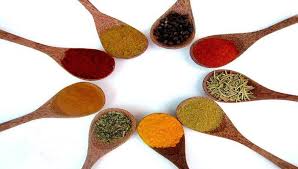
Breaking News
 Too Close for Comfort? Washington Judge's AGO Ties Spark Recusal
Too Close for Comfort? Washington Judge's AGO Ties Spark Recusal
 Blast Them: A Rutgers Scientist Uses Lasers to Kill Weeds
Blast Them: A Rutgers Scientist Uses Lasers to Kill Weeds
 Christian Faith-Based Groups Helped Rebuild North Carolina After Hurricane Helene Destruction
Christian Faith-Based Groups Helped Rebuild North Carolina After Hurricane Helene Destruction
Top Tech News
 New Spray-on Powder Instantly Seals Life-Threatening Wounds in Battle or During Disasters
New Spray-on Powder Instantly Seals Life-Threatening Wounds in Battle or During Disasters
 AI-enhanced stethoscope excels at listening to our hearts
AI-enhanced stethoscope excels at listening to our hearts
 Flame-treated sunscreen keeps the zinc but cuts the smeary white look
Flame-treated sunscreen keeps the zinc but cuts the smeary white look
 Display hub adds three more screens powered through single USB port
Display hub adds three more screens powered through single USB port
 We Finally Know How Fast The Tesla Semi Will Charge: Very, Very Fast
We Finally Know How Fast The Tesla Semi Will Charge: Very, Very Fast
 Drone-launching underwater drone hitches a ride on ship and sub hulls
Drone-launching underwater drone hitches a ride on ship and sub hulls
 Humanoid Robots Get "Brains" As Dual-Use Fears Mount
Humanoid Robots Get "Brains" As Dual-Use Fears Mount
 SpaceX Authorized to Increase High Speed Internet Download Speeds 5X Through 2026
SpaceX Authorized to Increase High Speed Internet Download Speeds 5X Through 2026
 Space AI is the Key to the Technological Singularity
Space AI is the Key to the Technological Singularity
 Velocitor X-1 eVTOL could be beating the traffic in just a year
Velocitor X-1 eVTOL could be beating the traffic in just a year
Herbs to treat inflammation: The 10 most powerful natural medicines that really work

(NaturalNews) Oftentimes, the knee-jerk reaction of the medical community to inflammation is to dole out drugs to reduce it. In fact, there is a whole classification of non-steroidal anti-inflammatory drugs, or NSAIDs, available by prescription and over-the-counter. NSAIDs are associated with a variety of risks, according to new labeling by the U.S. Food and Drug Administration (1), including an increased risk for cardiovascular events like heart attack and stroke.
Fortunately, you can use herbs for inflammation instead of dangerous drugs.
#1 Black Pepper
People refer to black pepper as the King of Spices because of its intoxicating, rich aroma and complex flavor. Black pepper owes its distinctive pungent flavor to piperine, which also provides an astonishing anti-inflammatory effect. Piperine inhibits the expression of a gene associated with arthritis and the spread of cancer, MMP13. Even at low doses, piperine reduces inflammation by depressing prostaglandin production. Furthermore, piperine significantly suppresses the perception of pain (2) and arthritis symptoms while decreasing inflammation in joints.
#2 Cardamom
As the Queen of Spices, cardamom also reduces inflammation. Part of the ginger family, cardamom is native to India and Sri Lanka; healers there have used cardamom to reduce inflammation for centuries.
#3 Cayenne
Cayenne pepper contains capsaicin. Exposure to capsaicin causes body tissues to release substance P, which your body usually releases immediately after tissue damage. Capsaicin does not actually damage tissue -- this chemical only tricks your body into acting as if damage had occurred.
Repeated exposure of one part of your body to capsaicin will deplete that area of its substance P, which increases tolerance to capsaicin in people who regularly eat hot peppers.
Reducing substance P in one area of your body also decreases your sense of pain in that part. Capsaicin cream products take advantage of this effect to reduce arthritis pain in joints and other sources of chronic pain. Best of all, the capsaicin in cayenne pepper can help protect your stomach (3) from ulcers associated with NSAID use.
#4 Chamomile
Ancient physicians Dioskurides, Galen and Plinius recommended tea to relieve inflammation of the mouth. Chamomile is a sun-loving plant whose flowers smell like fresh apples. Oil distilled from these flowers contain a-bisabolol and chamazulene cyclic sesquiterpenes, which directly reduce inflammation. Chamomile oil also contains bisabolol oxides, farnesene and spiro-ether that have anti-inflammatory and antispasmodic properties.
#5 Ginger
Traditional medicine has relied on ginger's anti-inflammatory powers for centuries. According to the University of Maryland Medical Center (4), there is also evidence that ginger eases pain associated with that classic inflammatory disease, arthritis. Additionally, ginger eases stomach upset, nausea and vomiting.
#6 Turmeric
Turmeric gives curry its flavor and yellow color; food manufacturers also add turmeric to butter and cheese for color. Healers have used turmeric for more than 4,000 years to relieve inflammation, treat digestive problems and fight infections.

 Keynesian Economics meme...
Keynesian Economics meme...

